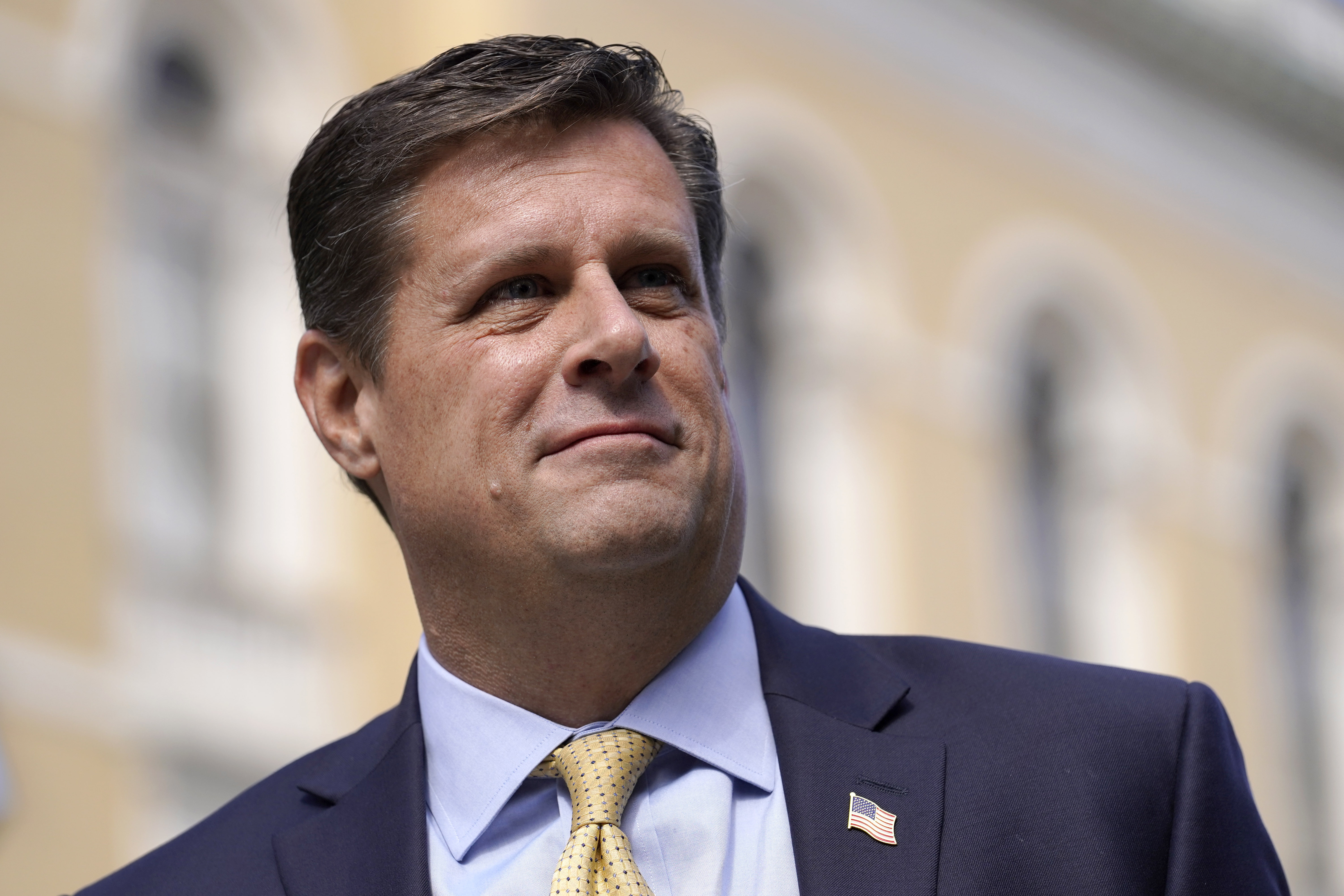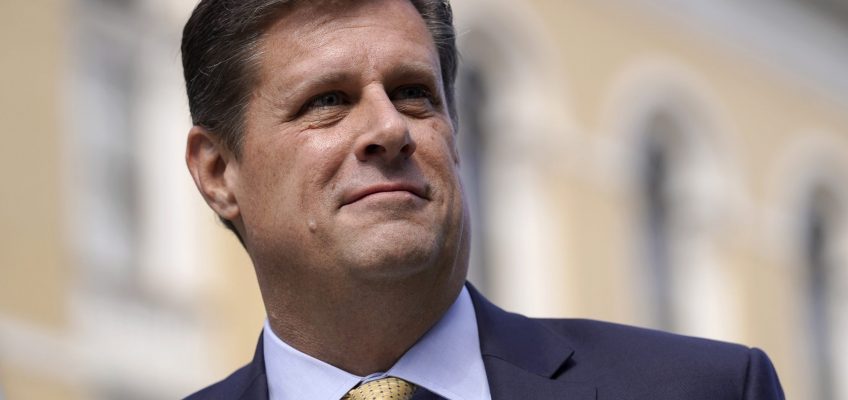
BOSTON — The race for governor in deep-blue Massachusetts is set to be a referendum on former President Donald Trump.
Trump-backed former state Rep. Geoff Diehl has clinched the Republican nomination for governor, setting up a clash between the conservative and Democrat Maura Healey, the state attorney general who burnished her profile by repeatedly suing the Trump administration.
Healey, who sailed through an uncontested primary after her last rival dropped out in June, is the overwhelming favorite to win in November — and one of Democrats’ two best hopes in the country to flip a governorship this fall.
While the former president’s endorsement played well with an increasingly pro-Trump Republican base, boosting Diehl over political newcomer Chris Doughty in the GOP primary, it’s poised to be a hindrance for Diehl in a general election. Massachusetts voters overwhelmingly rejected Trump and his brand of Republicanism in both of his presidential bids.
Trump endorsed Diehl to settle a score with popular Republican Gov. Charlie Baker, who opted not to run for a third term.
After initially veering away from Trump when he launched his campaign, Diehl embraced the former president and his rhetoric. He brought in Trump’s former campaign manager, Corey Lewandowski, as a senior adviser, and he campaigned over the summer with South Dakota Gov. Kristi Noem, a Trump ally. And he has falsely claimed the 2020 election was “rigged.”
That gives Healey, a progressive prosecutor who sued the Trump administration nearly 100 times, an obvious general election foil.
Healey signaled as much when, speaking before the Republican primary was finalized, she said either man would “bring Trumpism to Massachusetts.”
“I don’t know about you, but I’m tired of the anger, the vitriol, the division,” Healey told her supporters at the IBEW Local 103 building in Dorchester. “That’s not who we are. That’s not what Massachusetts is about.”
She also, in a nod to the importance of reproductive rights even in a state where access to abortion is enshrined in law, said noted that Diehl “oppose[s] abortion rights.”
Healey will kick off her general election campaign Wednesday in Worcester, the state’s second-largest city, with her new running mate, Salem Mayor Kim Driscoll, at her side.
In a tele-rally a day before the primary, Trump spoke highly of Diehl, calling him a “proven fighter” who will “rule your state with an iron fist and he’ll do what has to be done.”
But Diehl faces a completely new challenge now as he ventures outside the GOP activist base.
Polls of the general election in Massachusetts have Healey — who easily won the Democratic nomination after clearing the primary field of major opposition — leading Diehl by double digit margins, 54 percent to 23 percent, according to a recent Suffolk University/Boston Globe poll. The Trump base won’t carry him, either: The former president only garnered 32 percent of the vote in Massachusetts the 2020 presidential election and around 33 percent in 2016.
Diehl and the Massachusetts Republican Party are now joining a small group of pro-Trump, far-right candidates who won primaries in the northeast but now find themselves at a disadvantage in the general election. That includes Trump loyalist Leora Levy who snagged the Republican Senate nomination in Connecticut over a local party-endorsed candidate, and far-right state lawmaker Dan Cox in Maryland, who beat a moderate Republican backed by outgoing Gov. Larry Hogan.
The combination has made the Massachusetts and Maryland governorships among the most likely to flip parties this year. Baker, the outgoing GOP governor of Massachusetts, has worked with Democrats in the legislature to pass laws fighting climate change, protecting abortion rights and even called for Trump’s impeachment following the Capitol riot.
Healey’s campaign for governor has put her current job as attorney general up for grabs. Former Boston City Councilmember Andrea Campbell won the Democratic nomination to face Republican Jay McMahon, pulling out a win in a heated primary against workers’ rights attorney Shannon Liss-Riordan, a labor attorney who poured at least $9.3 million of her own money into her campaign to flood the airwaves with seven television ads. Campbell will be the favorite against McMahon, who lost his bid against Healey in 2018.
Polling by UMass Amherst released days ahead of the race showed a near-tie between both candidates, but Campbell pulled ahead comfortably Tuesday night.
Campbell campaigned on advocating for communities of color in the criminal justice system, which includes calling for a “police accountability unit” within the office’s civil rights division, enforcing gun safety laws and protecting people’s rights under the Affordable Care Act.
Campbell ran for mayor of Boston in 2021 and was previously president of the city council.
The Democratic primary had divided top Massachusetts progressives, pitting Healey, Rep. Ayanna Pressley, and Sen. Ed Markey, who backed Campbell, against Sen. Elizabeth Warren, Boston Mayor Michelle Wu and former Boston Acting Mayor Kim Janey, who had come out with late-stage endorsements of Liss-Riordan. Quentin Palfrey, the third candidate in the race, ended his campaign last week and backed Campbell — after hammering her throughout the campaign over their stark policy differences and super PAC spending on her behalf.
Campbell is poised to become the first Black woman to be Massachusetts attorney general.


Leave a Reply